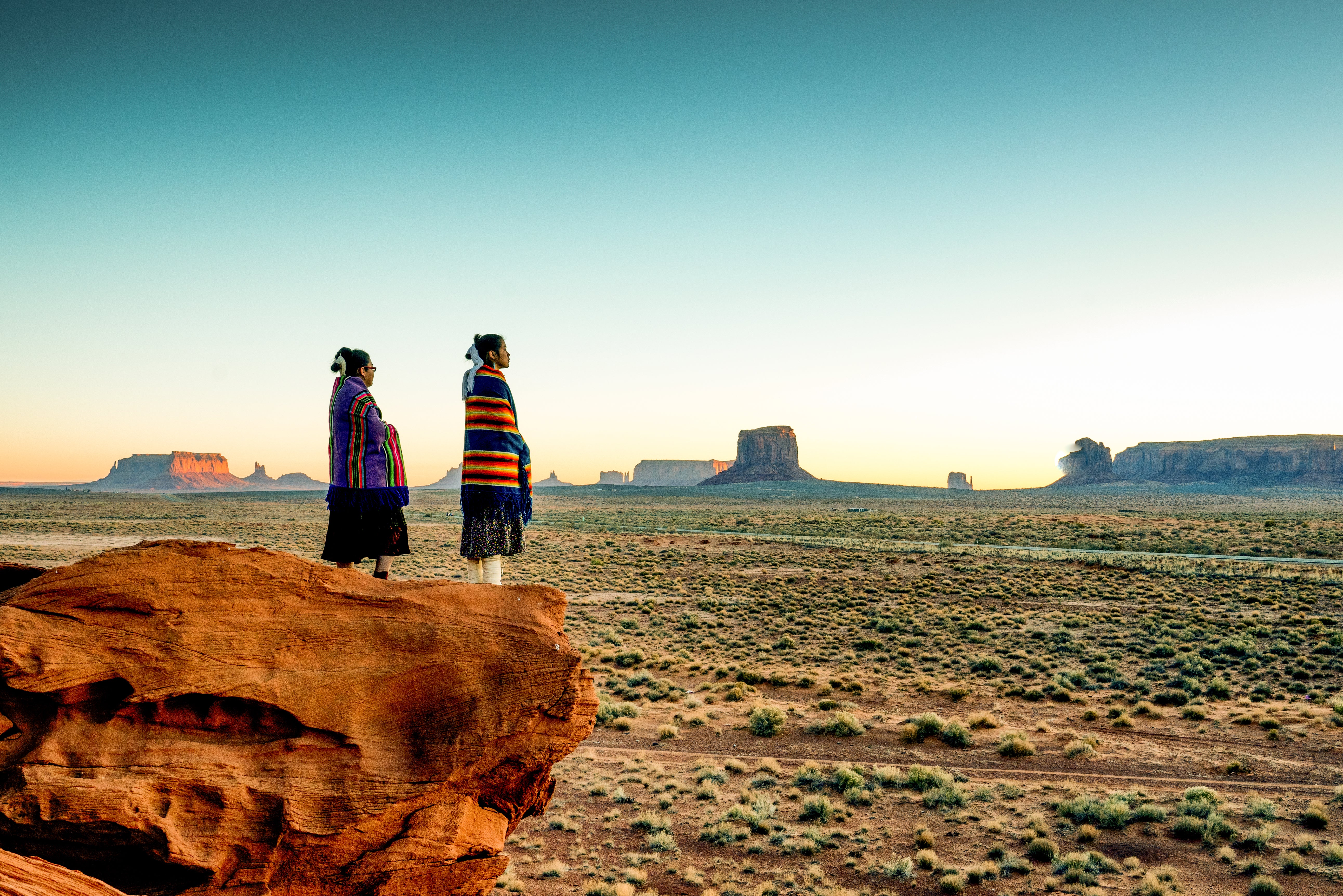Anthropology
Related: About this forumAnthropology Association Apologizes to Native Americans for the Field's Legacy of Harm
For decades anthropologists exploited Indigenous peoples in the name of science. Now they are reckoning with that history
By Rachel Parsons on March 28, 2022

Navajo sisters look out over Monument Valley. Credit: grandriver/Getty Images
In 1901 the soon to be first president of the American Anthropological Association wrote that “through observation of a typical [Native American] tribe,” it was clear that “the savage stands strikingly close to sub-human species in every aspect.” An outgrowth of the pseudoscientific theory of racial and cultural hierarchy, William McGee’s words in American Anthropologist, anthropology’s flagship academic journal, echoed racist 19th-century views that justified mistreatment of Indigenous communities and propped up arguments for eugenics. In the decades that followed, anthropologists continued to support racist agendas, appropriate cultural knowledge, and steal material objects and human remains belonging to Indigenous peoples throughout the Americas in the name of scientific research. In November 2021 the American Anthropological Association (AAA) apologized for the field’s legacy of harm.
Anthropology as an academic field evolved out of the burgeoning subject of sociology in Europe in the 19th century, focusing on small-scale cultural groups in Africa, Asia and the Americas. In the U.S., anthropology and its subfields—including archaeology and linguistic anthropology—were grounded in the study of Native American communities. In its apology, the AAA pointed to the discipline’s “record of extractive research,” noting that, taken as a whole, this record constituted an “abusive relationship” in which anthropologists declared themselves “experts” and built their scholarly reputations by privileging their version of Indigenous knowledge over that of Indigenous communities themselves.
Vernon Finley, director of the Kootenai Culture Committee, grew up observing his grandfather’s interactions with the “onslaught of anthropologists” who came to record Kootenai tribal elders’ stories. Researchers nearly always interpreted them incorrectly, Finley recalls. Furthermore, elders were never told what the visitors intended to do with this information. “They thought it was purely for this person’s interest in knowing and interest in improving their life. They didn’t know it had to do with advancing their career,” he says.
Through a 21st-century lens, even those anthropologists with good intentions frequently contributed to the damage. In the early 20th century Franz Boas famously worked to debunk the racial hierarchy myth and promoted equal civil rights for Native Americans. But as a curator, he helped populate the American Museum of Natural History in New York City with the belongings, human remains and funerary objects of the tribes he advocated for. The looting was sometimes a condition of keeping his funding for fieldwork.
More:
https://www.scientificamerican.com/article/anthropology-association-apologizes-to-native-americans-for-the-fields-legacy-of-harm/
2naSalit
(92,686 posts)F'ing time!!
I refused to become a member because of their inability to face what they had done.
Magoo48
(5,346 posts)How about asking the native peoples, “What can we do in the way of repairing the damage we’ve done?”
wnylib
(24,392 posts)some science and genealogy magazines. I've read articles that "explain" Native reluctance to participate in DNA studies and testing as Native fear of the unknown and an inability to comprehend modern science.
That's an assumption made without consulting Native people on how they feel about it. I have also read articles written by Native people advising tribal nations to be wary of using DNA as a marker of who is Native. Some current tribal members, whose families have been in the tribe for generations, have mixed ancestry due to past captives in war, past enslavement of Natives by European Americans, rape (into modern times) and voluntary intermarriage (into modern times). So some members would have a lower percentage of Native DNA than others. The concern in the articles that I read was that placing too much importance on "blood quantum" or DNA, could lead tribes into racist views of who is a "real" tribal member. That does not sound to me like fearful ignorance of DNA technology.
Another concern about DNA testing among some Native people is that there are non Natives who have always identified as another ethnicity, usually White European, who seek to claim that distant Native ancestry makes them "instant Indians" and therefore entitled to treaty rights established between individual tribal nations and the US government. They have no interest in Native cultures or well being, only in what they think they can get for themselves out of DNA tests. Others have romanticized ideas about Native people from pop culture and want to claim membership without ever learning what the culture really is.
Add that to how pseudo science has been used in the past to "prove" Native inferiority, and you have some valid reasons for Native reluctance to participate in any scientific studies.